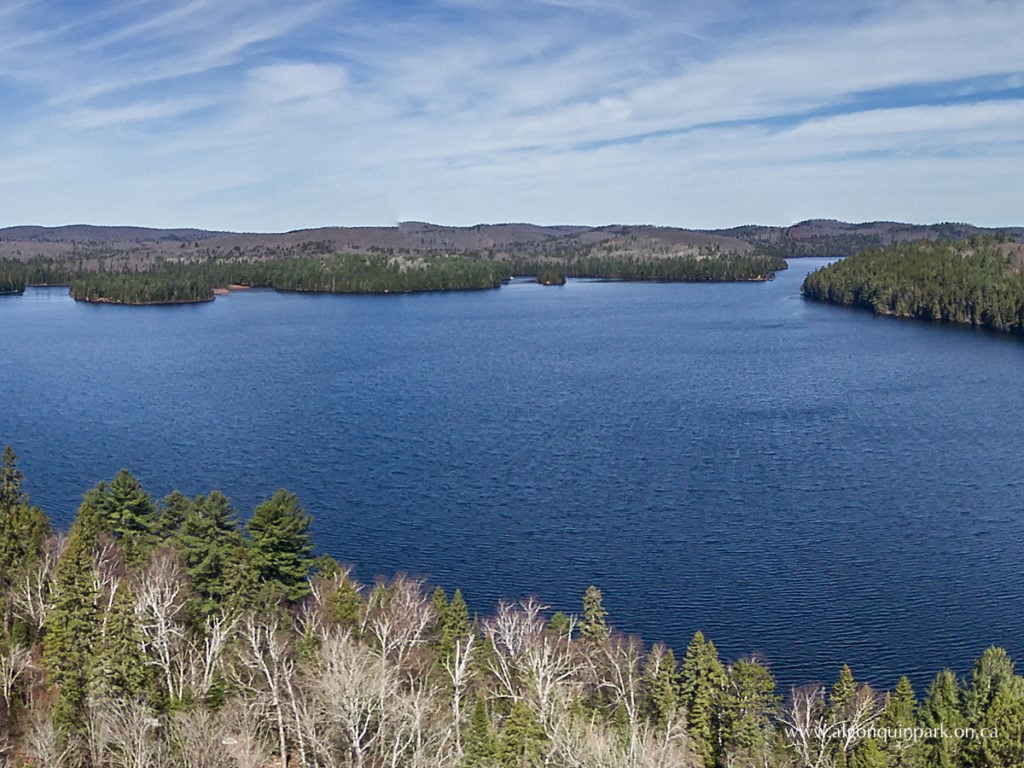Ice-Off on Lake Opeongo

Lake Opeongo, Algonquin Parks’s largest lake (and the source of a tributary of the same name which flows to the Ottawa River through the Madawaska) was declared ice-free May 1st, 2016. Like many northern lakes, the ice-out date has been recorded each year for quite some time (since 1964) at Lake Opeongo. This year, ice-out arrived a full week later than the average date recorded since 1964. The typical ice-out date varies depending on the characteristics of each individual lake such as:
- The surface area of the lake (as the largest lake in Algonquin, Opeongo is one of the last to lose its ice)
- The total depth of the lake.
- The thickness of the ice from year to year
- The local balance of incoming solar radiation and heating of the surface by the atmosphere.
The exact method of determining when ice-out occurs varies between different lakes: some consider ice-out to be when the lake is 90 % or 100% ice-free based on visual or aerial surveys, while others such as Lake Opeongo consider it to be when a boat can navigate freely between two different points along the shoreline. For awhile, residents living around Lake Minnetonka in Minnesota would park an old car on the lake ice and mark the day it fell through as the ice-out date (although this method is not recommended). In spite of this variability in methods of measuring and climate, ice-out dates for many lakes in continental North America seem to show a clear trend towards being ice-free earlier in the spring since records are available. This is significant since the melting of ice on a lake’s surface during the spring causes an overturning of the stratified layers of water which are relatively stable over the winter.

Does a lake near you have a long tradition of recording the ice-out? We’d love to hear about it! Even if ice-out has already passed near you this year be thankful that summer is just around the corner; if you’d like to learn more, check out these resources to learn more about how ice-out dates are recorded and what they tell us:
- University of Minnesota- Minnesota Average Ice-Off Day
- Friends of Algonquin Park- Algonquin Park Ice Conditions 2016
- Kenora, Ontario Ice Patrol
- See Opeongo Lake on the Water Rangers platform
Did you know…
You can record Ice-on and Ice-off on the Water Rangers platform. See Lac McGlashan for one example of how we recorded both Ice on and Ice off. Do you have a lot of data you’d like to get imported onto our platform? We can help! Get in touch.